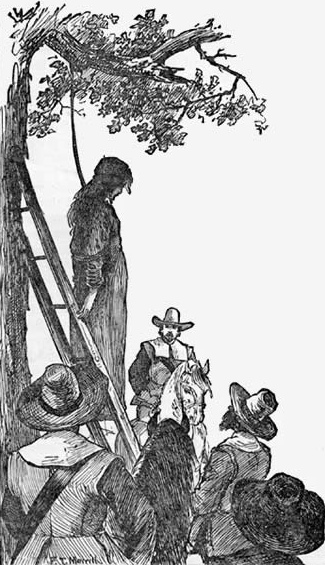
Witches used to be defined as women who have supernatural powers and cast evil spells on people. People certainly were afraid of them and this fear was upheld by certain tracts in the Bible condemning witchcraft. Deuteronomy 18:11-12 states that 'Anyone who does these things is detestable to the Lord' while 'Do not allow a sorceress to live' appears in Exodus 22:18.
In ancient Egypt and Babylonia witchcraft was punishable by law. In 331 BC 170 women were executed in Rome, accused of playing a part in an epidemic illness. Also in Rome, 2000 people were executed for witchcraft in 184 BC and a further 3000 people during 180-182 BC in relation to an epidemic. Witches continued to be hunted in Rome until the Roman Empire adopted Christianity as its state religion. According to some sources, the executions per populace during this era far exceeded the rate perpetrated during the early modern period. Jewish law also condemned witchcraft and during 1BC 80 women accused of witchcraft were sentenced to death in one day.
Witches continued to be persecuted through the ages, the cases increasing markedly during the 14th and 15th centuries when there was widespread fear that, variously, Jews, Moslems and/or witches were attempting to undermine Christianity. During the Middle Ages attempts were made by the Roman Catholic Church to check this fanatical execution of people stating that even believing that someone was a witch was superstition, but the Reformation brought witchcraft trials back into the realm of religion. From 1550 to 1650, persecution of witches became a craze, the fear being that witches were now in league with the Devil. Throughout Europe during this period known as the 'Burning Times' around 100 000 'witches' were executed, many by burning, others by beheading, hanging, strangling and even crushing. There are also accounts of torture to extract confessions. The Salem witch trials during 1692 took the lives of 20 people.
Some Witchcraft Acts have been abolished only recently. Zimbabwe lifted the ban on witches in 2006. The UK repealed the act in 1951. However, Israel, Saudi Arabia, Papua New Guinea and South Africa still have current Witchcraft Acts. See this report on witchcraft beheadings in Saudi Arabia. In various states in Africa, notably Cameroon, the Gambia, Ghana, Sierra Leone, Tanzania, Democratic Republic of the Congo, Kenya and Zambia witch hunting still continues. In 2009 a South African woman was burned to death by a petrol bomb, suspected of being a witch. In Northern India women are killed, accused of being witches; an estimated total of 2500 women having lost their lives to mob lynchings between 1995 and 2009. In Papua New Guinea the torture and murder of alleged witches continues. In Saudi Arabia, as recently as June 2012 an accused 'witch' was beheaded.
Certainly witchcraft suppression legislation could not possibly be defined in a manner that allows for 'no reasonable doubt' due to the supernatural nature of the practise. This is obviously the case in Saudi Arabia where witchcraft is a criminal offence even though the the crime is undefined.
The sheer absurdity of the entire process is astounding and just as incomprehensible as targeting Jews. Why are there no mass executions of psychopaths, paedophiles and serial murderers? How on earth can a witchcraft trial prove that a person has by some sort of supernatural means, caused harm? Where is the forensic evidence? Especially when this harm has often been in the form of crop failures or health epidemics.
One has to ask the question why the vast majority of those condemned as 'witches' were women even though men can also be witches. Is this a convenient way to get rid of women who don't conform, are not obedient? Or is it deeper than this? Is it because humans need an enemy for validation of the self? In the absence of a war, is this a form of identifying and eradicating the requisite enemy? And what better target than the weaker, the least protected of the species?
http://www.holocaust-history.org/~rjg/witches.shtml
http://en.wikipedia.org/wiki/Witch-hunt
No comments:
Post a Comment
If you liked this or found it interesting - or even if you didn't like it ;-) please comment!